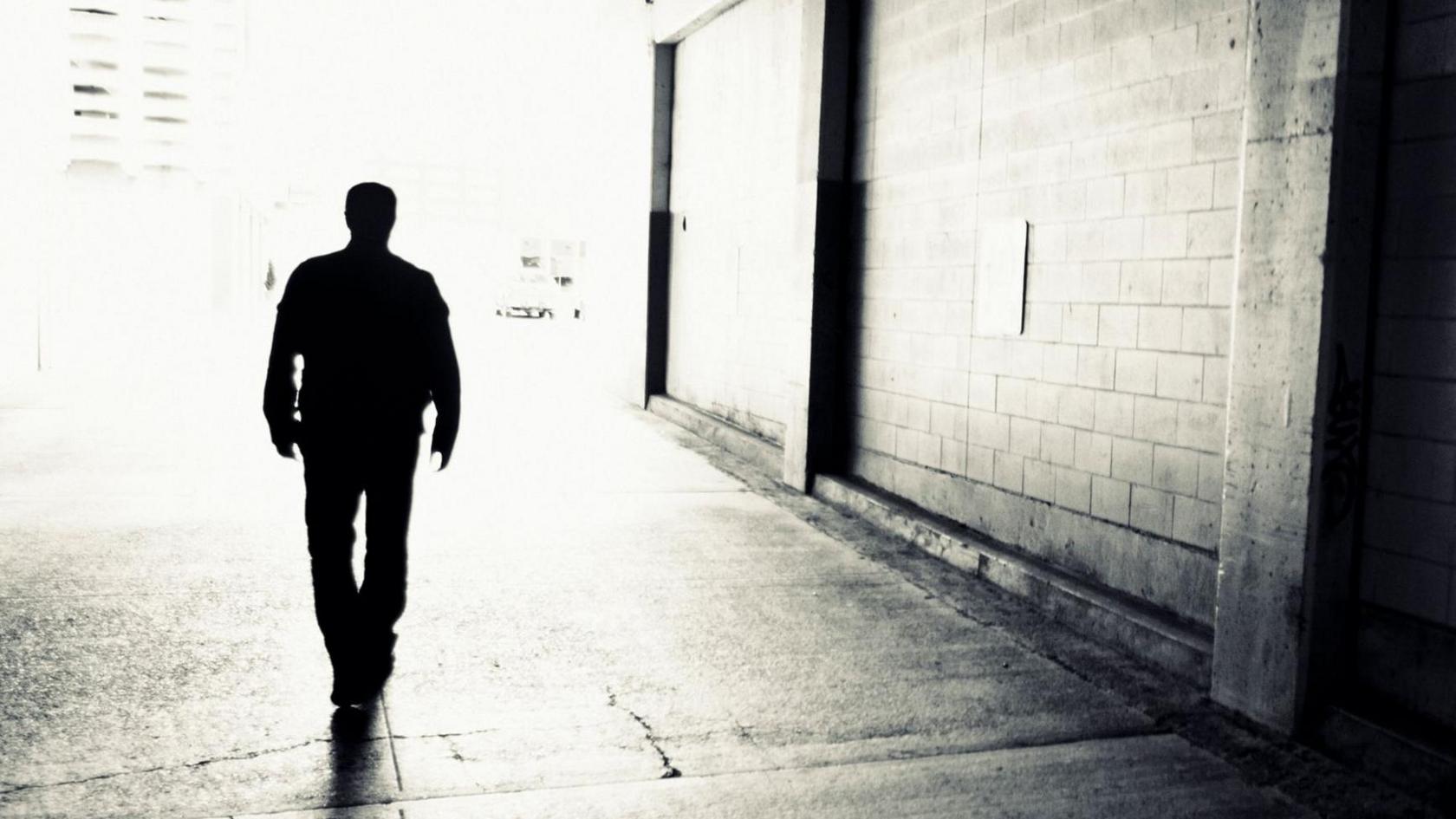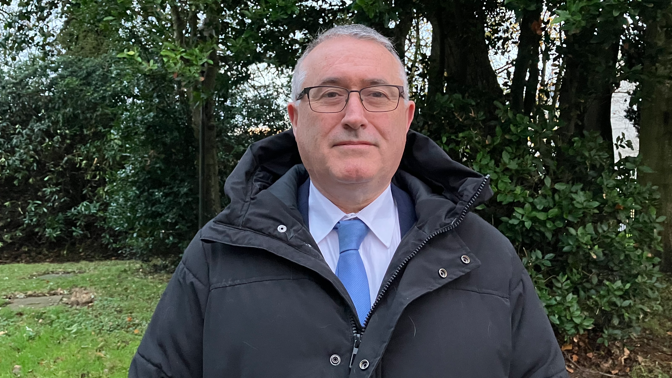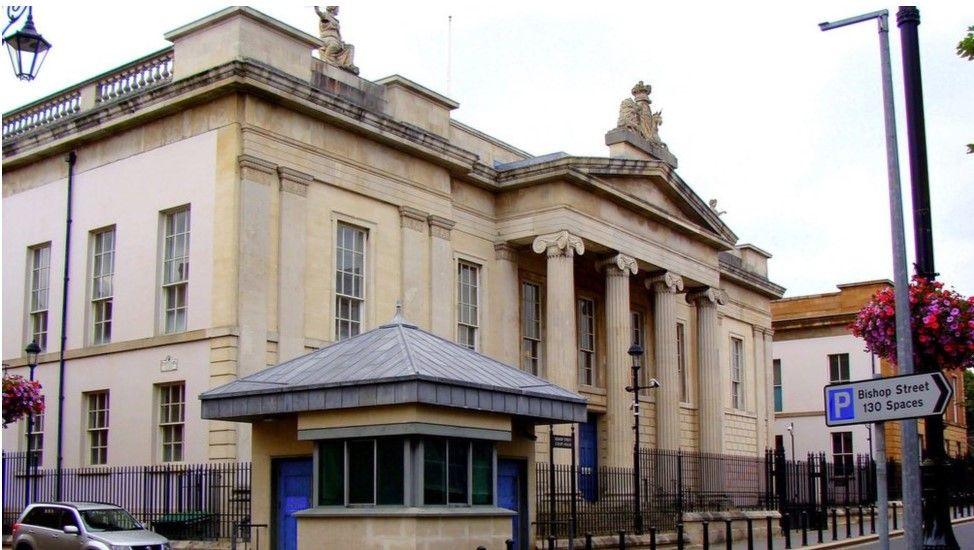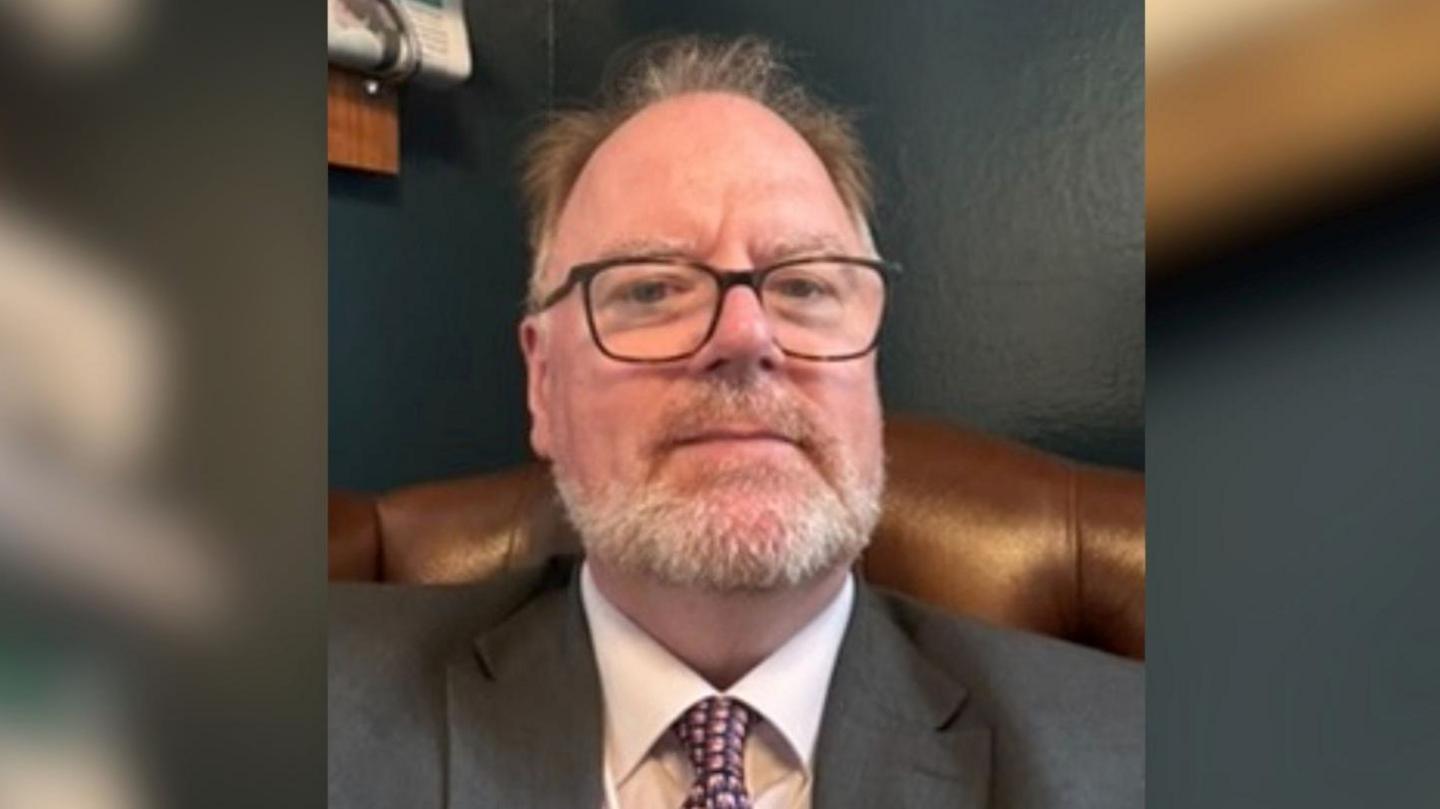Judge speaks out on anonymity for drugs suspects

Hundreds of people suspected of drug dealing are given anonymity by the courts throughout Northern Ireland
- Published
Londonderry's District Judge Barney McElhom has said that he will continue to grant suspected drug-dealers anonymity until he is told that the threat against them is lifted.
He spoke out after BBC News NI revealed that more anonymity orders in drug cases were granted in Derry in the last five years than in the rest of Northern Ireland put together.
Figures show almost 90% of the 374 anonymity orders in drugs-related prosecutions were granted in the city.
Derry solicitor Paddy MacDermott linked the high numbers to the dissident republican threat but the National Union of Journalists (NUJ) voiced concern, saying anonymity should "never become the default".
Mr McElholm was speaking at Londonderry Magistrate’s Court on Thursday as he granted anonymity to a 40-year-old woman accused of having cocaine with intent to supply on Monday.
He said that it may well be that the intent to supply charge may not go ahead but the problem was that if someone’s name was "out there as a drug dealer" there could be consequences.
Figures obtained by the BBC show that between 30 September 2019 and 2024, the number of orders granted at the Bishop Street courthouse was 13 times higher than the 25 issued at Laganside in Belfast.
During his career, Mr MacDermott said he has made "dozens, if not hundreds" of similar applications.

Paddy MacDermott says he has made "dozens, if not hundreds" of similar applications
The solicitor said courts listen "sympathetically" to applications where there could be a threat to the life or safety of a defendant if they are named.
He said one of the biggest concerns was around the emergence of the republican paramilitary group Republican Action Against Drugs (RAAD) in 2007.
"This led to quite a lot of so-called punishment shootings in this city.
"That led to concerns they [paramilitaries] were getting information from the media," he said.

Jasmin Duddy, 21, was found unresponsive at a house in the Galliagh area of Derry in 2023
Pauline Duddy’s daughter Jasmin died after taking prescription drugs last year at the age of 21.
She now wants anonymity orders to be scrapped in drugs cases.
“I’ve actually been in court and listened to anonymity orders getting thrown out willy-nilly,” she said.
“Why is the judiciary protecting these people?
“These people need to be named. The judiciary has to abolish this order.
“People have the right to know who’s supplying these deadly drugs to their children.”
Dessie Kyle is from the Derry-based charity HURT [Have Your Tomorrows], which was set up to help people with drug and alcohol addiction.
He said some suspects were "taking advantage of this cloak of anonymity" but added: "We wouldn’t want vulnerable people to be going through additional pressure if their names and addresses came out."
He said judges had difficult decisions to make in drugs cases.
"We are dealing with people who are vulnerable, who need support, they don’t want to be paced in further jeopardy by having their names and identities widely known – for others though, who are hiding behind anonymity then surely there has to be a different result from the courts."
'Cruel issue'
The Police Service of Northern Ireland (PSNI) said the granting of anonymity orders was a matter for the judiciary.
Det Ch Insp Phelan, from the PSNI'S organised crime branch, said they remained fully committed to tackling the "cruel issue" of paramilitary-style attacks.
"These appalling acts of violence have no place in our society," he said.
"The brutal injuries inflicted are a stark violation of people’s basic human rights and those responsible don’t care about the long-term physical and emotional damage they inflict on victims and their families."
A number of defendants in drugs-related cases have been wounded in paramilitary-style shootings in the city.
Of the 37 paramilitary-style shootings during 2022/23, police figures show that most happened in Derry City and Strabane (14), followed by Belfast (10) and Ards and North Down (6).
These same areas saw the greatest increase in the number of shootings compared to the previous year; the number in Derry City and Strabane increased by eight, in Belfast by five and in Ards and North Down by four.
Of the 12 paramilitary-style shootings in the past year, six were carried out in Belfast and three in Derry City and Strabane.
There were two in Ards and North Down and one in Causeway Coast and Glens.
Anonymity 'must never be default position'

Bishop Street courthouse in Derry, where the vast majority of Northern Ireland's anonymity orders in drugs cases were made
The NUJ assistant general secretary Séamus Dooley said anonymity orders must only be used where necessary.
“Anonymity must never become the default position and it is especially concerning that journalists have been unable to report on hundreds of cases in Derry," he said.
"The high level of orders in Derry is of particular concern and underlines the need for determined action to tackle the scourge of drugs within the community.
"Legal processes must not be abused to protect those who exploit vulnerable people or seek to profit by inflicting misery on communities."

Brian Archer says judges do not grant the orders "willy-nilly".
Part-time district judge and Belfast-based lawyer Brian Archer is a spokesman for the Law Society, which represents solicitors in Northern Ireland.
He said judges do not grant the orders "willy-nilly".
Mr Archer said any application needed to be supported by evidence from the solicitor and police.
However, he accepted that similar applications in drug related cases are "few and far between" outside of Derry.
Mr Archer said open justice is preferred but if there is a "credible" threat the court will normally consider and grant an application.
The office of the Lady Chief Justice, Dame Siobhan Keegan, said open justice was a key principle of the justice system and any departure had to be justified and proportionate.
A spokesperson said: "The media may make representations to the court when it is considering making such an order or may challenge such decisions judicially.
"While it is acknowledged that the numbers of such orders are higher within certain court locations these are judicial decisions, and it would be inappropriate for this office to speculate as to the basis for them."